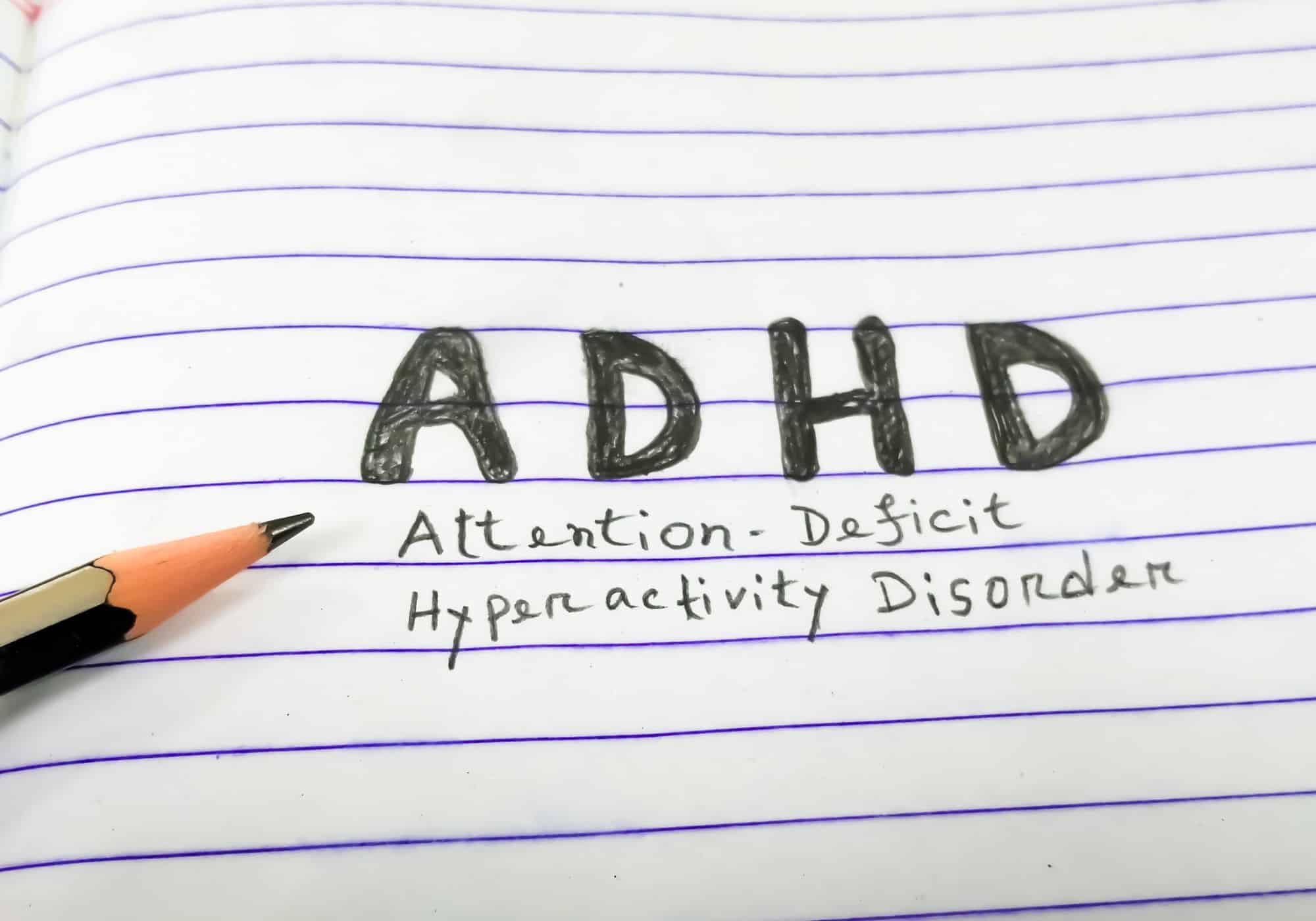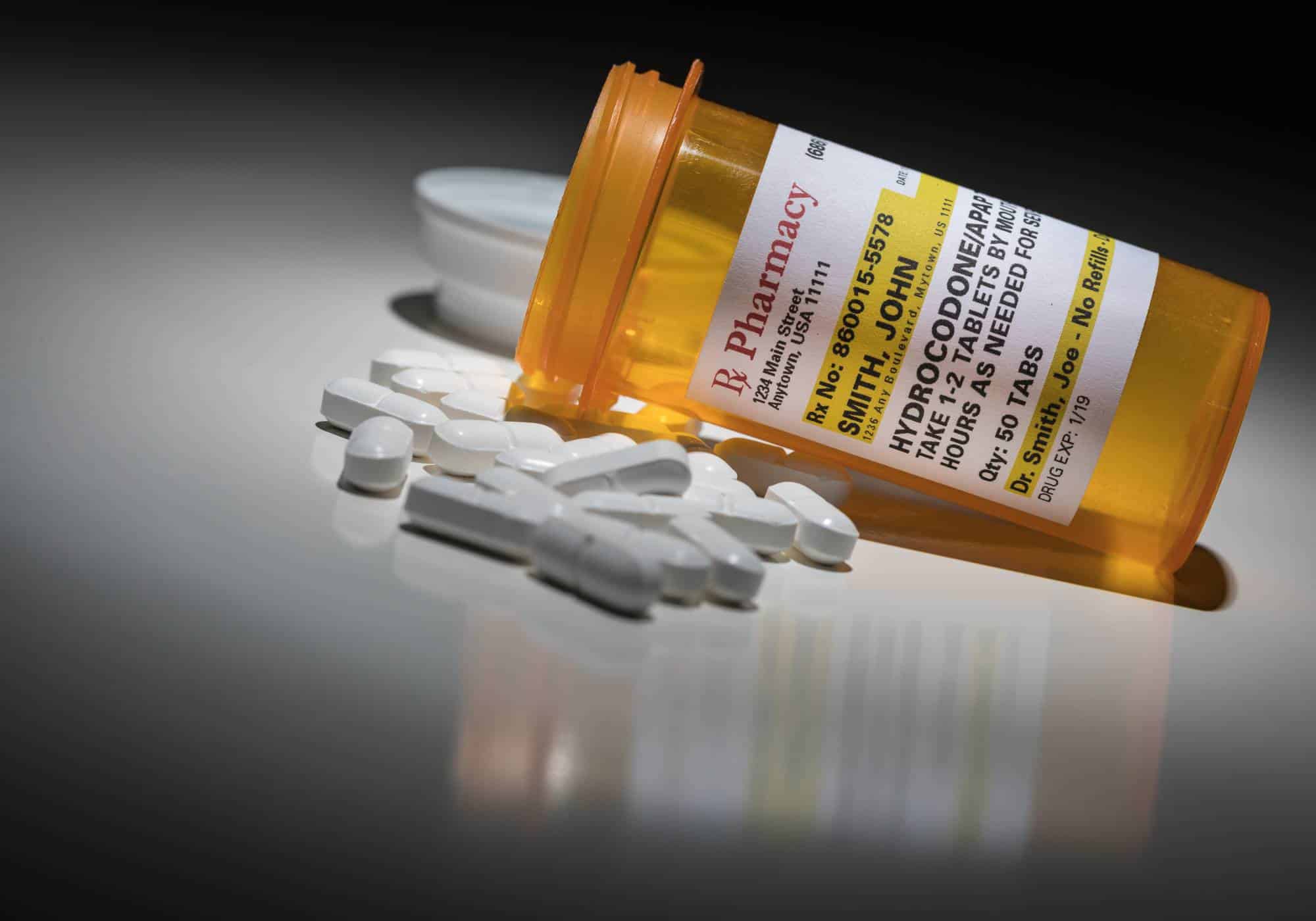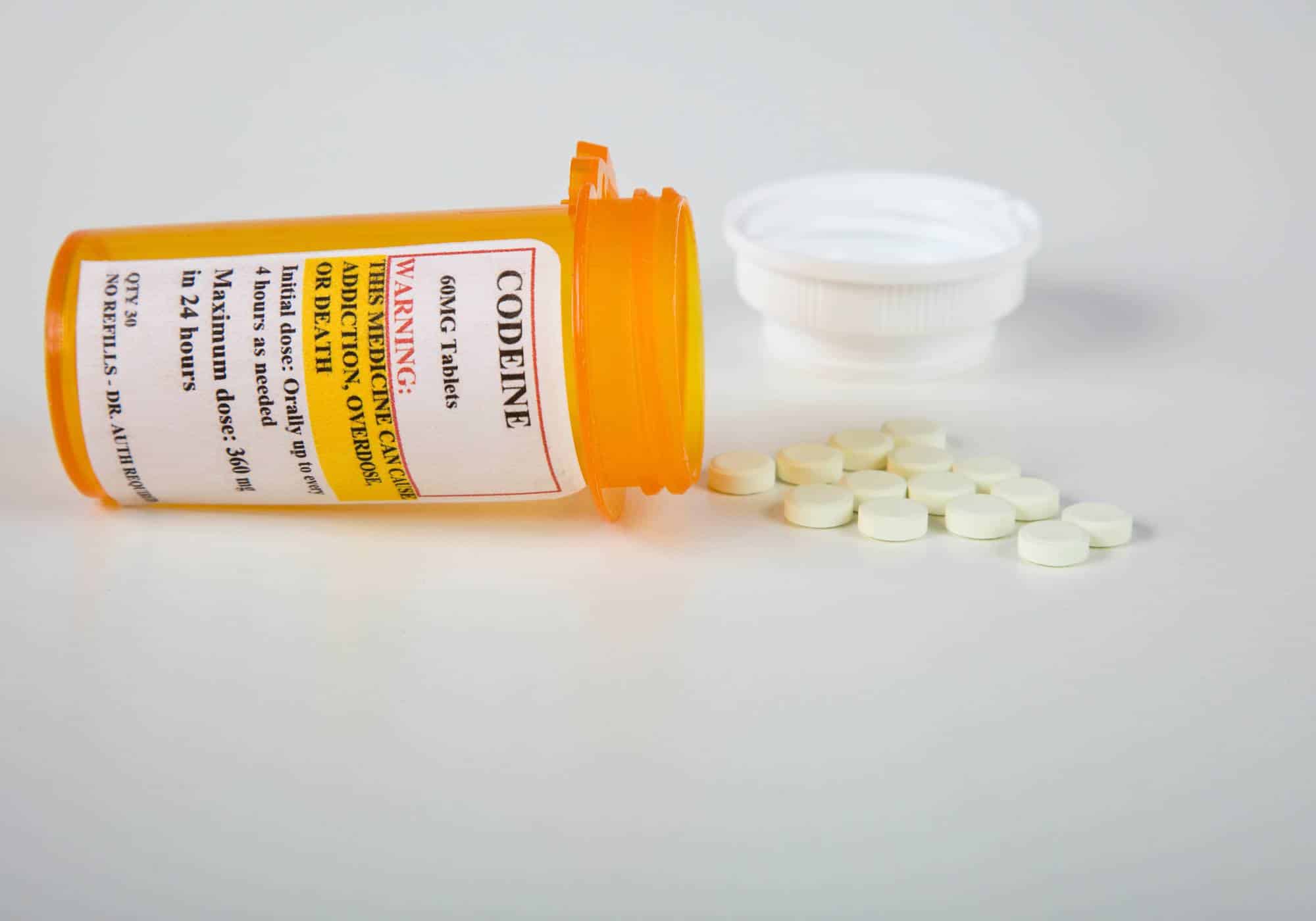What is ADHD?
At Hope Harbor Wellness, we recognize Attention-Deficit/Hyperactivity Disorder (ADHD) as a common mental disorder that predominantly affects children and can persist into adulthood. Characterized by inattention, hyperactivity, and impulsivity, ADHD symptoms include difficulty maintaining focus, excessive movement inappropriate for the setting, and making hasty, unthoughtful decisions. That is why we are hear to help with our comprehensive ADHD Treatment in Atlanta, GA.
Recognized as a chronic and potentially debilitating condition, ADHD significantly impacts academic and professional achievements, interpersonal relationships, and everyday functioning. Children with untreated ADHD may develop poor self-esteem and social challenges, while adults might struggle with low self-worth and heightened sensitivity to criticism, often a result of ongoing challenges and criticism faced throughout their lives.
Statistically, about 8.4% of children and 2.5% of adults are diagnosed with ADHD, with a higher prevalence in boys compared to girls, partly due to differences in symptom presentation. Boys typically exhibit more hyperactivity and externalizing symptoms, whereas girls may display more inattentive behaviors. At Hope Harbor Wellness in Atlanta, we provide tailored care for individuals with ADHD, focusing on managing symptoms and addressing the broader emotional and social challenges associated with the disorder. Our goal is to empower those with ADHD to lead fulfilling and successful lives.

Types of ADHD
Understanding the nuances of Attention-Deficit/Hyperactivity Disorder (ADHD) is crucial for effective ADHD treatment. At Hope Harbor Wellness, we recognize that ADHD presents itself in various forms, and each type requires a tailored approach to treatment. Here’s a closer look at the three main types of ADHD:
Predominantly Inattentive Presentation
- This type involves challenges with staying focused, paying attention to details, and maintaining organization.
- Symptoms include difficulty in sustaining attention, poor listening skills, lack of follow-through on tasks, disorganization, avoidance of mentally taxing tasks, frequent loss of essential items, being easily distracted, and forgetfulness in daily activities.
- Diagnosis requires the presence of six (or five for individuals 17 years or older) of these symptoms frequently.
Predominantly Hyperactive/Impulsive Presentation
- Here, hyperactivity manifests as excessive movement and energy, such as fidgeting, inability to remain seated, and excessive talking.
- Impulsivity involves hasty actions without considering consequences.
- For diagnosis, six (or five for 17 years or older) symptoms like inability to stay seated, excessive running or climbing, difficulty engaging in quiet activities, always being ‘on the go’, talking excessively, blurting out answers, difficulty waiting turns, and interrupting others are typically present.
Combined Presentation
- This type is diagnosed when criteria for both inattentive and hyperactive/impulse types are met.
Signs and Symptoms of ADHD
ADHD’s manifestation is multifaceted. While one individual might showcase overt restlessness, another might silently struggle with incessant daydreaming. These symptoms could span across cognitive, emotional, and behavioral areas:
Cognitive ADHD Symptoms
ADHD often manifests as notable distractibility, where an individual can easily become preoccupied with unimportant or irrelevant stimuli. This can result in inconsistent performance, showing alternating periods of focus and inattention. It’s not unusual for someone with ADHD to find multitasking challenging, struggling to switch focus effectively between tasks. Procrastination is another common symptom, as individuals might frequently delay or avoid tasks requiring sustained mental effort. Coupled with this, there’s often a distinct difficulty in initiating tasks, even when they’re well-understood.
Emotional ADHD Symptoms
Individuals with ADHD frequently display heightened levels of impatience. This impatience can be observed in daily situations, like finding it challenging to wait one’s turn, especially when patience is required. There’s also a pronounced aspect of emotional dysregulation; emotional responses might seem more intense than the situation calls for, or there could be unexpected emotional outbursts. These intense emotions might lead to reactions that seem impulsive or disproportionate to those without ADHD.
Behavioral ADHD Symptoms
This isn’t just the stereotypical foot-tapping; it can also be seen in a constant drive for activity or change. Impulsivity is another dominant behavioral trait, which often extends beyond actions to verbal impulsivity, like frequently interrupting conversations. The challenges with managing time effectively and the tendency to hop from one activity to another without completion are also typical indicators. This behavior might appear as being disorganized or careless to others but is rooted in the neurological aspects of ADHD.
Recognizing these signs and symptoms is the first step toward seeking help and finding relief. Our mental health professionals prioritize creating a safe and supportive environment for individuals to openly discuss their experiences and begin their journey toward healing and wellness with ADHD Treatment in Atlanta, GA.

Causes of ADHD
The cause of ADHD remains under constant scientific scrutiny. While no singular cause is pinpointed, several factors play a role:
Genetic Predispositions
The role of genetics in the development of ADHD cannot be overstated. Family histories often reveal patterns of ADHD or related conditions, suggesting that heredity plays a significant part in the onset of the disorder. Not only do these patterns suggest a hereditary component, but recent scientific studies have also identified specific genes that might increase an individual’s susceptibility to ADHD. This line of research indicates that our genetic blueprint may provide crucial insights into understanding the condition.
Brain Anatomy and Physiology
Delving into the human brain brings forth a plethora of intriguing findings related to ADHD. There’s compelling evidence to suggest that individuals with ADHD may exhibit nuanced differences in certain brain regions. These differences, especially in areas responsible for attention, impulse control, and executive function, can have profound effects on neurotransmission and the overall neural network functionality. Such disparities in the brain’s neural pathways can potentially elucidate many of the symptoms and challenges associated with ADHD.
Prenatal and Early Life Factors
The early stages of human development, particularly the prenatal and infancy phases, are critical in the context of ADHD. Several factors during these pivotal periods can predispose an individual to the disorder. For instance, maternal substance uses during pregnancy, whether it’s alcohol, tobacco, or other drugs, can heighten the risk for the developing fetus. Additionally, complications such as premature birth or having an unusually low birth weight can also contribute to the risk factors associated with ADHD. These early-life determinants underscore the importance of comprehensive prenatal care and consistent monitoring during the initial years of childhood.
Risk Factors for ADHD
Certain circumstances or conditions might increase the risk of ADHD:
Environmental Toxins
Our surroundings play a more significant role in our health than we often realize. For ADHD, certain environmental toxins have been identified as risk enhancers. Lead exposure, especially in young children, can have detrimental effects on cognitive development and behavior. Similarly, exposure to certain pesticides, especially during crucial developmental stages, can elevate the risk of ADHD. It’s essential to be aware of these factors, especially when living in older homes or areas where pesticide use is prevalent.
Neurological Factors
The intricate network of neurons in our brain is vulnerable to various internal and external factors. Among these, traumatic brain injuries stand out as potential risk factors for ADHD. A significant injury, especially to the frontal lobe – the region responsible for decision-making, impulse control, and attention – can manifest symptoms akin to ADHD. It’s crucial to treat and monitor such injuries promptly, ensuring any resultant symptoms are addressed.
Psychosocial Aspects
Our mental well-being is closely intertwined with our social environment and personal experiences. Stressful life situations, whether they stem from financial troubles, job-related pressures, or academic challenges, can intensify ADHD symptoms. Furthermore, a turbulent family environment marked by consistent discord or instances of childhood adversities, like neglect or abuse, can act as potent catalysts. Recognizing and addressing these psychosocial stressors is vital in managing and understanding the broader spectrum of ADHD risk factors.
The development of attention deficit hyperactivity disorder can be attributed to a combination of genetic, environmental, and neurological factors. Genetic predispositions may increase an individual’s susceptibility to developing ADHD, while environmental factors such as prenatal exposure to toxins or complications during pregnancy can contribute to the onset of symptoms. Additionally, differences in brain structure and imbalances in certain neurotransmitters, particularly dopamine and norepinephrine, may play a role in the manifestation of ADHD.
Understanding the underlying causes and risk factors is crucial for tailoring personalized ADHD treatment plans and ensuring optimal outcomes for individuals seeking ADHD therapy in Atlanta, GA. Call Hope Harbor Wellness today to start your treatment for ADHD.

How is ADHD Diagnosed?
A correct diagnosis is both an art and a science. At Hope Harbor Wellness, the process is exhaustive:
Initial Consultation
This includes a deep dive into the individual’s medical, academic, or occupational history.
Behavioral Observations
Systematic behavioral reviews, often assisted by feedback from caregivers, teachers, or peers, to understand the depth and breadth of symptoms.
Standardized Testing
Cognitive and behavioral tests gauge an individual’s functional capacity and highlight areas of challenges.
Personal Narratives
Encouraging individuals to share their daily experiences, challenges, and aspirations, providing a holistic view of their world.
ADHD is vital for developing an effective, personalized treatment plan that addresses the unique needs and challenges faced by everyone. If you are looking for ADHD Treatment in Atlanta, GA, our team at Hope Harbor Wellness provides empathetic and evidence-based care throughout the assessment and diagnostic process.
Therapy for ADHD in Atlanta, GA
Living with ADHD can be challenging, but at Hope Harbor Wellness in Atlanta, we provide comprehensive solutions to help manage and thrive with this condition. While there’s no one-size-fits-all cure for ADHD, our multifaceted approach aims to enhance quality of life and functioning.
Our Tailored ADHD Treatment Strategies
Behavioral Therapy for ADHD
- Ideal for school-aged children, this therapy focuses on modifying behaviors that interfere with everyday life.
- In collaboration with educators, therapists work to improve social skills and establish beneficial habits, often using rewards to encourage positive behavior.
Parent Skills Training
- Designed specifically for parents of children with ADHD, this training emphasizes positive reinforcement techniques.
- Parents learn to quickly recognize and reward good behavior, fostering a supportive environment at home.
Cognitive Behavioral Therapy (CBT) for ADHD
- CBT Therapy for ADHD provides valuable tools for managing impulsivity and improving decision-making processes.
- This therapy is particularly beneficial for enhancing focus and coping with daily challenges.
Dialectical Behavior Therapy (DBT) for ADHD
- DBT Therapy for ADHD is effective in helping individuals manage emotions, control impulses, and practice mindfulness.
Family Therapy
- Essential for families dealing with ADHD, this therapy improves communication and fosters a better understanding of the disorder.
- It’s a vital support system for the entire family unit.
Medications for ADHD
- Both stimulant and non-stimulant medications can be effective in managing ADHD symptoms.
- These medications help improve concentration and reduce impulsivity, but it’s crucial to start any medication under medical guidance.
Our ADHD therapy program also addresses the unique challenges faced by individuals who are grappling with both ADHD and addiction, also known as dual diagnosis. We provide specialized support to ensure that both conditions are treated effectively, recognizing the interplay between ADHD symptoms and addictive behaviors.
At Hope Harbor Wellness, we’re committed to providing empathetic, evidence-based care. Our team of specialists understands the complexities of ADHD and works tirelessly to create a supportive, understanding, and effective treatment environment. Call our mental health treatment center to begin your ADHD Treatment in Atlanta today.
ADHD Treatment in Atlanta
Partial Hospitalization
This comprehensive mental health and substance abuse treatment program provides comprehensive care to manage acute symptoms. Our structured PHP programs, offered 5 days a week, ensure that our clients receive the support they need to navigate everyday life.
Intensive Outpatient
Our Intensive Outpatient Program (IOP) is designed as a step down from our Partial Hospitalization Program. This IOP program provides intensive therapy 3 to 5 days a week based on the client’s individualized needs.
Evening Intensive Outpatient
Our evening outpatient program is held 3 evenings per week to cater to individuals that are unable to participate in our daytime programming.
Outpatient Treatment
This mental health and substance abuse outpatient program is intended to allow individuals a transition out of our treatment setting that will encourage independence while still having essential accountability and support. This program will be held 2 days a week.
Hope Harbor Wellness endorses a holistic treatment perspective, understanding that ADHD can influence various life sectors. Embracing holistic modalities, such as life-skills training and physical activity, can mitigate ADHD symptoms. For a comprehensive ADHD intervention in Atlanta, Ga, contact us at 678-605-9725.

ADHD Therapy Near Me
Finding the right “ADHD therapy near me” or “adhd treatment near me” can be a game-changer in managing Attention Deficit Hyperactivity Disorder (ADHD). It’s about more than just convenient access; it’s about connecting with skilled therapists who understand the unique challenges and strengths of ADHD. In these therapy sessions, individuals learn effective strategies to navigate attention difficulties, hyperactivity, and impulsivity. Personalized approaches in therapy ensure that each session is tailored to individual needs, fostering an environment where growth and self-understanding flourish. Whether it’s for yourself or a loved one, seeking ADHD therapy nearby opens doors to improved focus, better relationships, and a more balanced life. Hope Harbor Wellness offers compassionate and supportive ADHD Treatment, call us today to begin your adult adhd treatment near me, call us today.
Taking the Leap: Seek ADHD Treatment in Atlanta, GA Today
ADHD is a chapter, not the entire story. At Hope Harbor Wellness our doors are wide open for anyone seeking guidance, understanding, and transformative treatment for ADHD in Atlanta, GA. With our rich tapestry of evidence-backed therapies, dedicated professionals, and an ethos rooted in genuine compassion, we’re here to support, guide, and empower. As you pen your narrative, we promise to be with you, turning each page toward understanding, recovery, and hope. Contact us at 678-605-9725 and together, we can help you regain control over your mental health and embrace a brighter, healthier future.









